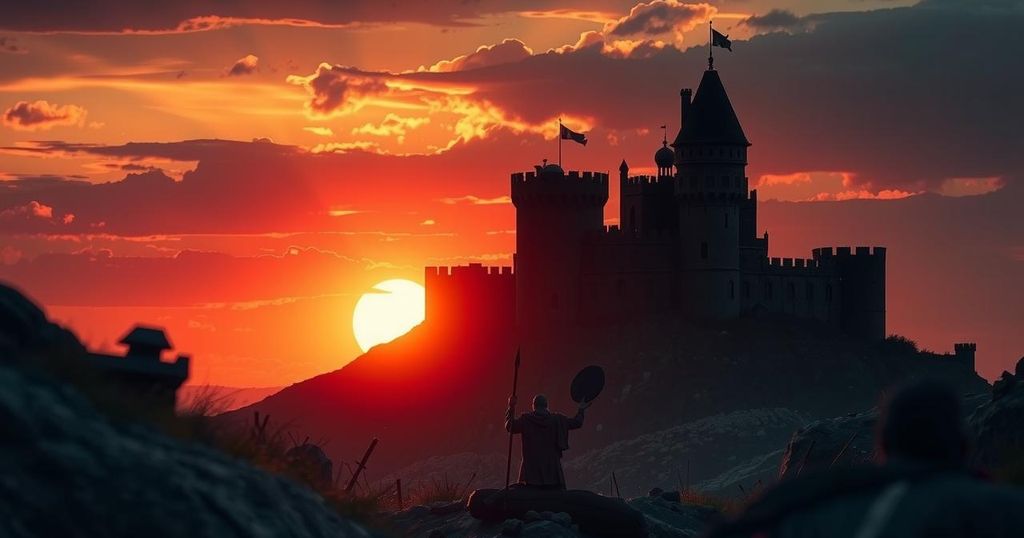Democratic Republic of Congo’s President Tshisekedi vowed not to face humiliation from the AFC/M23 rebels who claimed control of Goma. While Tshisekedi promises a vigorous response, regional leaders call for dialogue. The situation worsens with rebel advances and accusations of Rwandan support for the rebels, raising concerns of escalating conflict between Congo and Rwanda.
President Felix Tshisekedi of the Democratic Republic of Congo has asserted that the nation will not be humiliated following the claims made by the AFC/M23 rebel coalition of their takeover in Goma. In a steadfast televised address, he promised a strong and coordinated response against the militant group that has captured significant territory in the eastern region, prompting local troops to surrender. Meanwhile, regional leaders have urged negotiations between the government and rebel factions to address the ongoing crisis.
As Goma fell under rebel control this past Monday, local reports indicate that the M23 coalition is advancing towards South Kivu, further exacerbating the situation. Although the Congolese government has not officially confirmed the takeover, they have acknowledged the city’s siege. The government accuses Rwanda of providing support to the M23 rebels, which Rwanda has neither denied nor confirmed, while it criticizes the Congolese administration for its collaborations with other militia groups.
During a recent meeting of East African leaders aimed at finding a resolution to the crisis, Tshisekedi did not attend. They proposed that he engage directly with stakeholders, including the M23 and various armed entities with grievances. Rwandan President Paul Kagame emphasized the necessity for dialogue among all parties involved in the conflict to achieve peace and understanding.
The situation has led to casualties among Congolese forces and foreign peacekeepers as they strive to repel the advancing rebels. Reports from Goma indicate ongoing fighting and disarmament of government troops by M23 forces. Additionally, over 280 Romanian mercenaries purportedly fighting for Congo’s military had surrendered, as stated by the Rwandan military.
According to Ladd Serwat, an analyst for the UK-based ACLED organization, two potential scenarios may emerge from this escalating conflict. The presence of M23 and Rwandan forces in Goma could coerce the Congolese government into negotiation, or it may result in Kinshasa pursuing military action, which could escalate into cross-border conflicts with Rwanda. President Tshisekedi has previously threatened military engagement against Rwanda, which has received a similar response from Kagame.
The Democratic Republic of Congo (DRC) has been engulfed in ongoing conflicts involving various armed groups, with the M23 rebel coalition recently seizing control of Goma, a crucial city in the mineral-rich eastern province. Tensions have significantly heightened due to alleged support from neighboring Rwanda for the rebels, leading to complex geopolitical dynamics in the region. The situation is compounded by historical tensions stemming from the Rwandan Genocide in 1994 and subsequent cross-border conflicts.
In summary, President Tshisekedi is determined to respond decisively against the M23 rebel coalition’s advances in eastern Congo. As fighting continues and more territory is lost, the DRC faces significant pressures to negotiate or risk escalating military confrontations. The involvement of regional powers such as Rwanda complicates the potential for a peaceful resolution, making the situation critical for all stakeholders involved.
Original Source: edition.cnn.com






